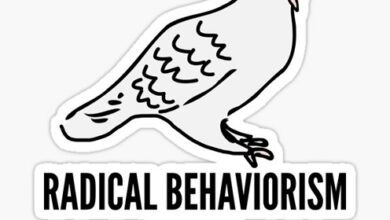False optimism Characteristics and what are its negative effects
Nobody can doubt that optimism is an attitude that can take us far in life and help us to be happy . Optimism is a virtue, as long as the optimistic person has high confidence in himself and is realistic about his surroundings. In this article we will provide you the information about the False optimism.
Otherwise, we would be talking about false optimism . And as Abraham Maslow, one of the greatest exponents of the humanist current, said: “False optimism, sooner or later, means disappointment, anger and despair”.
In this article, we will talk about false optimism and delve deeper into this concept and its characteristics.
What is false optimism?
When we adopt a positive and optimistic mindset, the world seems to turn in the direction we want. But for optimism to be authentic, it must be in tune with our self-esteem, because with low self-esteem, optimism simply masks our weakness.
Feeling good about yourself is essential for us and for relating to the environment around us. High self-esteem makes us much more positive people, aware of our virtues and weaknesses and that, after accepting ourselves as we are, we can look forward without fear. High self-esteem allows us to adapt to the environment that surrounds us with a smile, although not everything goes smoothly. The authentic optimist learns from mistakes, because his view of the world allows him to accept defeats and understand that we are not perfect.
However, optimism has become fashionable and some people want to pretend they are optimists when their inner world is broken. They don’t have a good connection with themselves, but they cover themselves with the breastplate of optimism. False optimism makes you not want to face reality to avoid problems and becomes a double-edged sword that, sooner or later, ends up doing harm. In short, it hides a denial of pain and suffering.
Characteristics of the false optimist
People with false optimism rely heavily on external approval and use optimism to avoid having to reflect or face their fears. But what characterizes these types of individuals? People with false optimism have the following characteristics and attitudes:
1. They are unrealistic
These types of individuals are unrealistic and use optimism to escape frustration and having to face an unpleasant reality. To grow as human beings, we must face our fears and tolerate frustration; otherwise, we will not benefit from the vital experiences that make us suffer, which in the long run are those that allow us to develop a strong and prepared personality. for the situations we least like.
Living happily 24 hours a day is impossible , so we must accept it. In addition, false optimists usually do not reach the proposed goals, as they are not realistic and false optimism ends up frustrating them.
2. They are not honest with themselves
These types of individuals are not honest with themselves, which is why this phenomenon is called false optimism. This self-deception is often frequent when someone does not want to accept the reality that surrounds them , it is an attempt to reduce the anxiety and discomfort they feel.
3. They are negatively evaluated
As I mentioned in the previous lines, this type of person is not positively valued, that is, they have low self-esteem . In this context, false optimism acts as a form of protection, since the person does not have enough mental strength to resolve internal and external conflicts.
4. Don’t live in the present
There are many investigations that have shown that people who practice mindfulness enjoy greater well-being. This is because they live in the present moment and have a non-judgmental attitude. People with false optimism live with unreasonable expectations, far from a “conscious” mindset .
5. Don’t self-motivate
False optimism may seem like a good motivational tool, but it’s not because expectations and goals are unreasonable. Applying false optimism to achieving goals can have negative consequences. Therefore, it is always important that the goals we set are attainable, realistic, clear and measurable, as we explain in our article: “The importance of setting goals in Sport Psychology”.
6. They didn’t find inner peace
When a person does not find inner peace, it is easy for him to be influenced by the outside world and for his happiness to depend on it. These are people who compare themselves to others and are continually concerned about what others think of them . False optimism is characteristic of subjects who are not really aware of their emotions, virtues and limitations. People who are not accepted as they are.
The trap of false optimism
Believing that someone is an optimist when they are not is a serious mistake, because this prevents people from entering their inner world and “prevents them from connecting with their inner world”, as psychologist Juan Cruz states in an article . Interview in the newspaper El Mundo . Optimism is a trap that does not allow for self-reflection, which has many benefits for personal development, as we discussed in our article: “Personal development: 5 reasons for self-reflection”.
The trap of false optimism is just as bad as pessimism , because it prevents people from learning from their experiences, something that is undoubtedly fundamental to growth and development.




